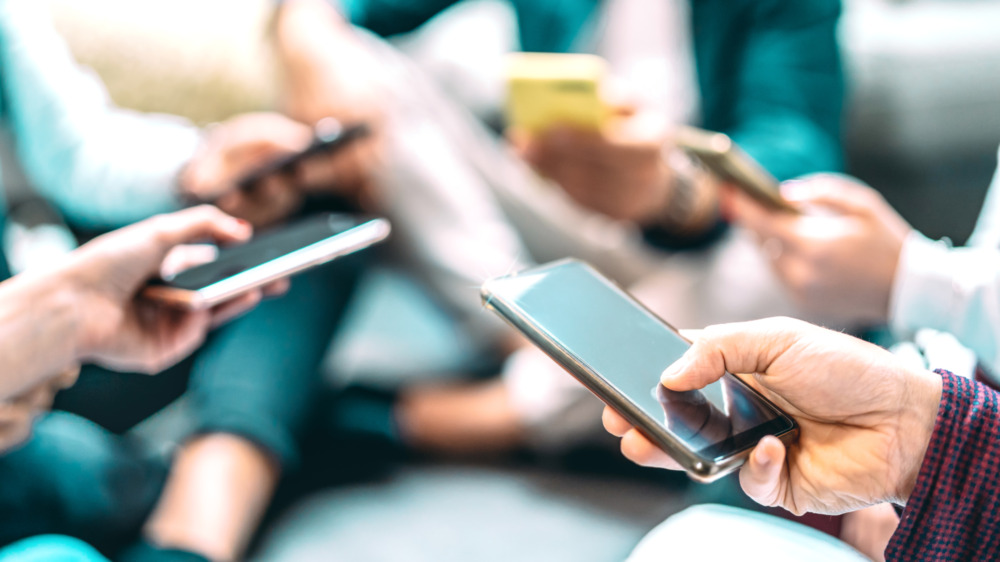Here's How Social Media Affects Your Dopamine Levels
There's no question that smartphones have altered the way that we socially and mentally operate. But, as more research continues to highlight the correlation between mental health issues and a high level of screen time, many have wondered how to best curb their tech addiction. By understanding the science behind our phone dependence, it may become easier to work with it rather than against it.
According to Glamour, the average person spends about three hours on social media, with almost a full hour of that time taking place on Instagram, per a report released in 2019. Of course, throughout the pandemic, those numbers have likely only gone up. With an influx in mental health issues coinciding with the uptick in cell phone usage, it's worth noting social media's impact on different hormones in the brain. The outlet reports that scrolling through Instagram spikes your dopamine levels; this is the hormone that makes you feel happy, so while that should be a good thing, it also can make way for addictive behaviors. With comments, likes, shares, and other forms of interactions, Instagram creates a zone in which your brain can readily get a hit of dopamine with each passing second.
Essentially, our brains eventually ask for more hits of this hormone, meaning that our constant scrolling comes as a result of its chemistry and biological need for dopamine. Even more damning, Glamour notes that cell phone usage also contributes to cognitive decline that's "age-related".
Social media reduces our brain's need to engage
In addition to creating screen-induced dopamine addiction, social media also reduces the amount that our brain needs to think — meaning that, just like a muscle, it can atrophy. Glamour explains that, by constantly checking social media and using an app to keep us entertained, the brain needs to do less thinking and creating of its own.
While our brains lose their strength, our levels of happiness seem to be decreasing as well. Indeed, Forbes cites a study that linked Facebook usage with a lowered level of moment-to-moment happiness. The primary reason for this negative impact revolves around the platform's ability to feign a sense of connectivity, only to leave users with a feeling of isolation. Social media users continue to return to their dopamine dealer — i.e. their favorite platforms — to get their fix of the molecule as well as a sense of social interaction, even if they aren't getting any meaningful experiences at all.
"Your brain changes moment by moment, according to what you expose it to," Dr. Caroline Leaf, a cognitive neuroscientist, tells Glamour. "When social media becomes what you overwhelmingly expose it to, you allow your brain to start changing networks and making neurotransmitters fire incorrectly. They won't fire in harmony and your brainwaves won't be coherent. This all causes abnormal pathways in the brain."
All the more reason to take a few hours a day to step away from your phone, your brain should also have external stimuli that increase its dopamine levels as well.

